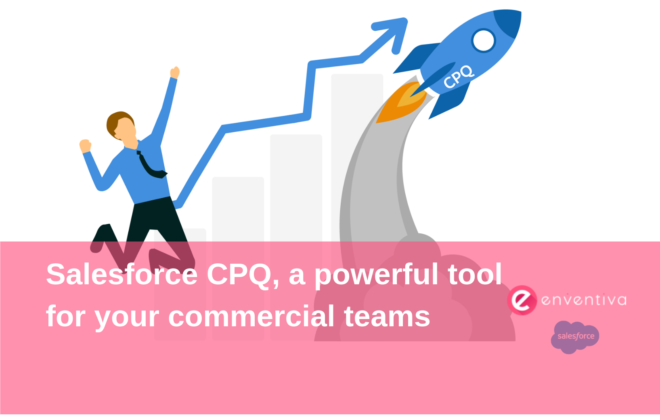Understanding Salesforce Industry Specific Cloud Solutions
Customer relationship management (CRM) is a real differentiator in competitive industries. Depending on your activities, you may have specific needs for your CRM. For example, telecommunications providers have to deal with demanding customers, while facing increasing competition from new players. On the other side, manufacturers mainly work with enterprise customers. They evolve in a global B2B market, where sales cycles are generally longer. A standard CRM solution cannot cover both markets with the same level of efficiency. At one point, companies need customization if they want to get the best value from their CRM.
Implementing your Industry Best Practices with Salesforce Vertical Cloud
In order to address these industry-specific requirements, Salesforce has leveraged the capabilities of its platform to build vertical solutions. Its open architecture also allows ISV partners, such as Vlocity, to provide extended vertical solutions. For the customers, this strategy brings real value: they can align their critical processes with the best practices of their industry, while getting all the benefits of a cloud platform, i.e., flexibility, rapid deployment and easy operation.
At Enventiva, we have built a strong vertical expertise around a few industries, including telecommunications and manufacturing. Our consultants also share accurate understanding of Salesforce vertical solutions. We use this knowledge to help companies design and implement CRM systems tailored to their needs.
Telecommunications: Putting the Customer First
In the telecommunication industry, the subscription model is predominant. Sustaining customer loyalty is really key, compared to less competitive markets. Today, the telecom industry is also challenged by over-the-top vendors, who grab market shares in media and communication services. To preserve their margins, traditional service providers must reinvent their business model and enhance their agility. Salesforce and Vlocity vertical solutions can help them achieve these goals.
First, telecom service providers need to harness customer data from every contact point, in order to understand their clients: Who they are? What do they want? What are their buying patterns? Why and when they may leave for a competitor? With Salesforce cloud platform, all the data is in the same place, which makes analyze easier. Companies may also benefit of the advanced predictive capabilities of Salesforce Einstein, a built-in Artificial Intelligence system. For example, they can use it to identify customers who are prone to leave and take proactive actions to retain them, such as special offerings. This helps reduce the churn rate.
Telecom vendors must also be able to deliver a seamless customer experience across every channel. With Salesforce vertical cloud platform, they can track every interaction with a customer on all existing channels, from social media to physical stores, from call centers to online shops. All data is shared between the various departments, allowing your employees to get a 360° view of the customer. Then, they can better address the client’s needs through customized services.
Last, the ability to deliver new and attractive offerings quickly is now critical for communication providers. To do so, they need efficient marketing processes, fueled with accurate market insights. An agile CRM system like Salesforce is key to reduce their time-to-market and help them continuously adapt to a changing environment.
Manufacturing: Supporting Extended Ecosystems and Digital Transformation
In manufacturing, building and maintaining a strong ecosystem of partners is essential. Salesforce Cloud for Manufacturing includes various features for connecting manufacturers with their clients, partners and resellers. Allowing fluent exchanges between all stakeholders is a powerful lever, which can be used to encourage co-innovation inside and outside the company.
B2B sales cycles take time : all selling efforts must be tightly coordinated to maximize the revenue. With tools like Salesforce CPQ, manufacturers can ensure a strong and efficient collaboration between all their departments. With everyone sharing the same goals, employees can focus on the most promising opportunities and close more deals.
Mobility is also critical for manufacturers: with customers all over the world, sales representatives are often away. Allowing them to access their CRM applications from everywhere is not only a time-saver, it is a prerequisite to build long-term and productive relationships with customers. The same requirement applies to support teams, who are constantly on the field. Salesforce Field Service Lightning is a mobile-friendly solution, designed to optimize the interventions of maintenance teams. It can manage work orders, track and follow SLAs and optimize job schedules.
Salesforce platform also supports the digital transformation of the manufacturing industry through innovative features. For example, Einstein Vision is able to analyze a picture of an asset out-of-order, in order to identify the product and help the technician prepare the right spare parts. Salesforce also provides an Internet of Things (IoT) platform on which companies can build their own IoT applications. The data collected can then be easily integrated with CRM processes. Manufacturers can use it to sustain new business models, such as proactive maintenance services.






